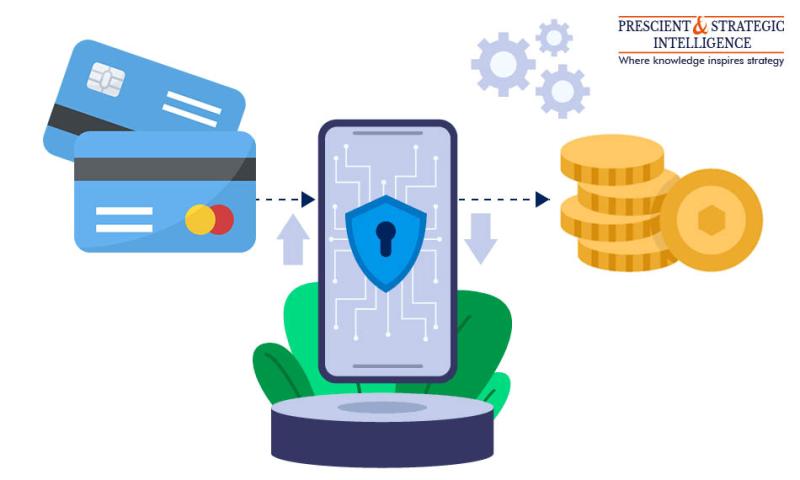Tokenization Market Growth Driven by Enhanced Data Security

Tokenization is a process that substitutes sensitive information with unique identifiers, or "tokens," that retain essential details without exposing the actual data. This method, widely adopted by small and medium-sized enterprises (SMEs), minimizes the amount of sensitive information businesses need to store, enhancing the security of credit card transactions and e-commerce. Tokenization not only strengthens security but also reduces the cost and complexity of meeting regulatory standards.
According to P&S Intelligence, the tokenization market is experiencing robust growth and is anticipated to reach USD 12,605.4 million by 2030.
Advantages of Tokenization
Tokenization enhances data security by making it difficult for hackers to access sensitive cardholder information. Unlike older systems that stored credit card data openly, tokenization adds layers of protection by using tokens that represent sensitive data without exposing it.
Primary Benefits of Tokenization:
- Compatibility with legacy systems, unlike encryption
- Less resource-intensive than encryption
- Reduces the risk of data breaches
- Supports new technologies like mobile wallets, one-click transactions, and cryptocurrency, thus boosting consumer trust in secure payments
- Simplifies PCI DSS compliance for merchants
How Tokenization Works
In tokenization, sensitive data is replaced by non-sensitive equivalents known as tokens. These tokens are generated by different methods, including cryptographic functions with keys, hash functions, or random number generation.
The token becomes the publicly accessible data, while the sensitive information is securely stored in a central "token vault," which allows tracking of the original data back to its token.
Real-World Tokenization Example:
- A customer provides payment information at a POS or online checkout.
- The information is replaced by a randomly generated token, often through the merchant’s payment gateway.
- The tokenized data is encrypted and sent to a payment processor, with the original data stored securely in a token vault.
- The payment processor re-encrypts the data before completing authentication.
- Some systems use “vaultless” tokenization, storing tokens without sensitive data.
Rising financial fraud and the need for secure payment gateways, along with compliance requirements to prevent data breaches and maintain user experience, are expected to drive growth in the tokenization market.
About P&S
Intelligence
P&S
Intelligence offers custom and syndicated market research and consulting
services to clients across the globe. Our team of young and dynamic
researchers, guided by mentors with years of experience, create data-rich
reports tailored to the needs of MNCs as well as startups and SMEs. We remain
in a perennial quest to offer exhaustive insights into every aspect of the
market, allowing businesses of all sizes to seize even the smallest of
opportunities and tackle even the biggest of challenges.
Contact:
Chandra Mohan
AVP – Business Development
Phone: +1-347-960-6455
Email: enquiry@psmarketresearch.com
Web: https://www.psmarketresearch.com
Post Your Ad Here
Comments